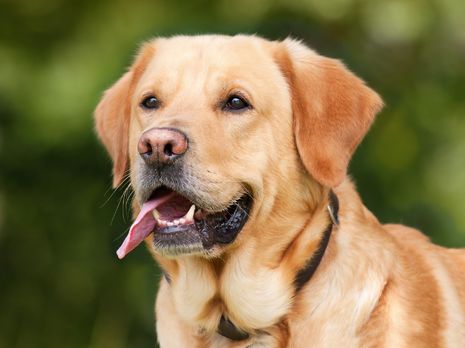Diagnostic dogs: Can our furry friends sniff out COVID-19?
Sambhavi Sneha Kumar explores how dogs can offer a less invasive and cuter alternative to swab-based tests

Though many of us have been able to enjoy a summer largely free from worry relating to COVID-19, the virus is still at large, with several thousands of new cases per day in England as of July 2022. With international travel becoming more feasible and large events going ahead, there is significant utility in individuals being able to test. As free lateral flow tests are no longer available to everyone in the United Kingdom, this is becoming more difficult.
An efficient way to keep crowds safe could involve relying on man’s best friend. Dogs have an extremely strong sense of smell, estimated to have an odour detection capacity that is 10,000 to 100,000 times more powerful than humans. What’s more, dogs are highly intelligent animals, capable of learning by association. Their keen noses already play an important role in several fields, including law enforcement and security. More recently, there has been increasing interest in the use of dogs in medical detection. If you follow enough animal pages on Instagram, you’ve probably come across some videos of Diabetes Alert Dogs that are said to be able to smell chemical changes in their owners’ breath that are associated with a dangerous hypoglycaemic attack, though evidence relying their reliability is often purely anecdotal.
“Dogs trained to detect COVID-19 could provide a faster alternative, with the added bonus of being much cuter than a nasal swab”
Some groups have proposed the use of dogs in places such as airports to quickly and non-invasively sniff out anyone infected with COVID-19. Everyone probably knows by now that testing for COVID-19 can be quite an unpleasant process. Furthermore, even for the faster lateral flow tests, there is a still a waiting time that can add up when multiple people are getting tested. Dogs trained to detect COVID-19 could provide a faster alternative, with the added bonus of being much cuter than a nasal swab.
This idea has been floating around since much earlier in the pandemic. In 2020, the University of Adelaide, Australia began training 14 dogs to detect compounds produced by the human body in response to viral infections as part of the COVID-19 Detector Dog Program. By 2021, 6 dogs had begun real-world trials in airports. Though the results were promising in terms of the dogs’ abilities, there were concerns regarding scaling up the testing due to the time taken to train the dogs to work with sweat samples. As of 2022, the program has managed to adjust their training protocols to improve scalability, and 4 dogs – Quake, Stan, Ned, and Stoffle – have begun trials in hospital detection at at Lyell McEwin Hospital, Australia. All of the dogs currently working in the Detector Dog Program are Labrador Retrievers, presumably reflecting their trainability due to their high food motivation.
“The dogs showed promising results compared to existing swab-based tests, with the group emphasising the high sensitivity of canine detection”
A recent investigation published in the peer-reviewed journal PLOS One aimed to assess how well canine olfaction-based testing of sweat samples matches up to current standards. The group, based in France, conducted a prospective cohort study in two COVID-19 screening centres with a total of 335 individuals. Canine olfaction-based testing was compared with nasopharyngeal RT-PCR, saliva RT-PCR and nasopharyngeal antigen testing. Dog welfare was kept a priority, with regular toy rewards. No dogs showed any signs of mental or physical stress following the training and testing period, which lasted several weeks and took place in the Alfort School of Veterinary Medicine. The dogs showed rather promising results compared to existing swab-based tests, with the group emphasising the high sensitivity of canine detection shown in this investigation.
Could dogs really offer a long-term solution to keeping COVID-19 numbers at bay? There are still several challenges in the field. Though dogs can clearly be very, very good at what they do, it does take time for optimal training to be completed. What’s more, there is a well established shortage in detection dogs working in security in both the USA and the United Kingdom, suggesting that recruitment of dogs to detect COVID-19 on a large scale will likely be challenging. Dogs probably have the capability to play a role in the long term management of COVID-19, but whether efficient systems can be designed to support them remains to be seen.
 News / Caius mourns its tree-mendous loss23 December 2025
News / Caius mourns its tree-mendous loss23 December 2025 News / Clare Hall spent over £500k opposing busway 24 December 2025
News / Clare Hall spent over £500k opposing busway 24 December 2025 Comment / The ‘class’ of Cambridge24 December 2025
Comment / The ‘class’ of Cambridge24 December 2025 Comment / Yes, I’m brown – but I have more important things to say22 December 2025
Comment / Yes, I’m brown – but I have more important things to say22 December 2025 Interviews / Politics, your own way: Tilly Middlehurst on speaking out21 December 2025
Interviews / Politics, your own way: Tilly Middlehurst on speaking out21 December 2025








